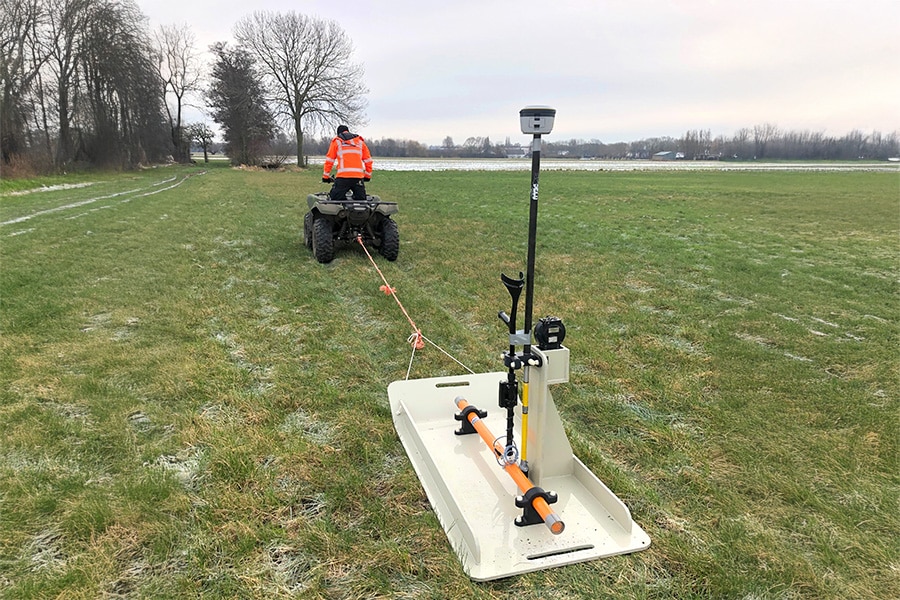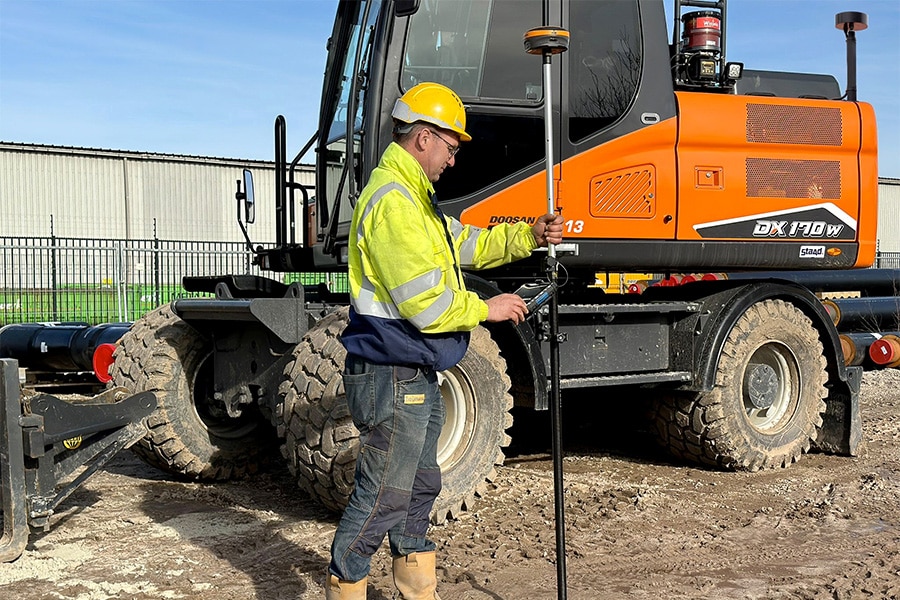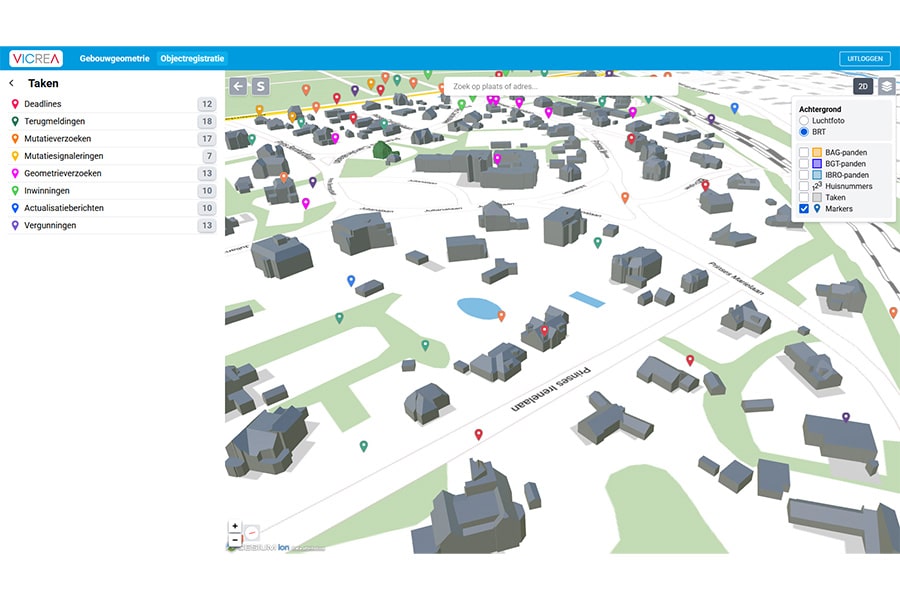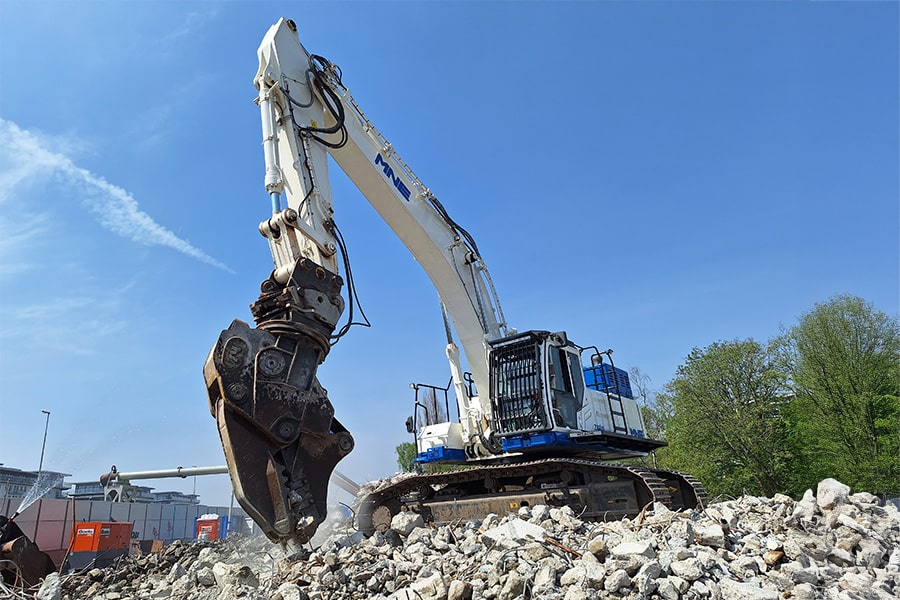
A9 BaHo: fast, safe and sustainable dismantling work by MNE
The widening of the A9 between Badhoevedorp and Holendrecht involves the replacement of several bridges and viaducts. This means an enormous amount of demolition and dismantling work. How do you tackle this safely, efficiently and sustainably? A question that suits MNE from Mijdrecht perfectly. The demolition company has already demolished, dismantled and processed thousands of tons of steel and concrete.
MNE is no stranger to the world of specialized demolition work. From complete harbor cranes and old coal plants to storage tanks and bridge valves - the company has experience in challenging projects. Founded in 2011 by brothers Marc and Edward van Golen, MNE has quickly gained a good reputation in the ground, water and road construction sector. Their reference projects include the renovation of the Haringvliet Bridge and the dismantling of the old power plant at Hemweg in Amsterdam. "This is our core business," says Fred Hulshof, project manager at MNE. "We arrange demolition projects from A to Z: from engineering to execution. We have our own construction workshop, transport, cranes and experienced professionals." Sustainability plays a big role in this. "We always look at whether and how materials can be reused or recycled. What is still usable, we offer through our network."
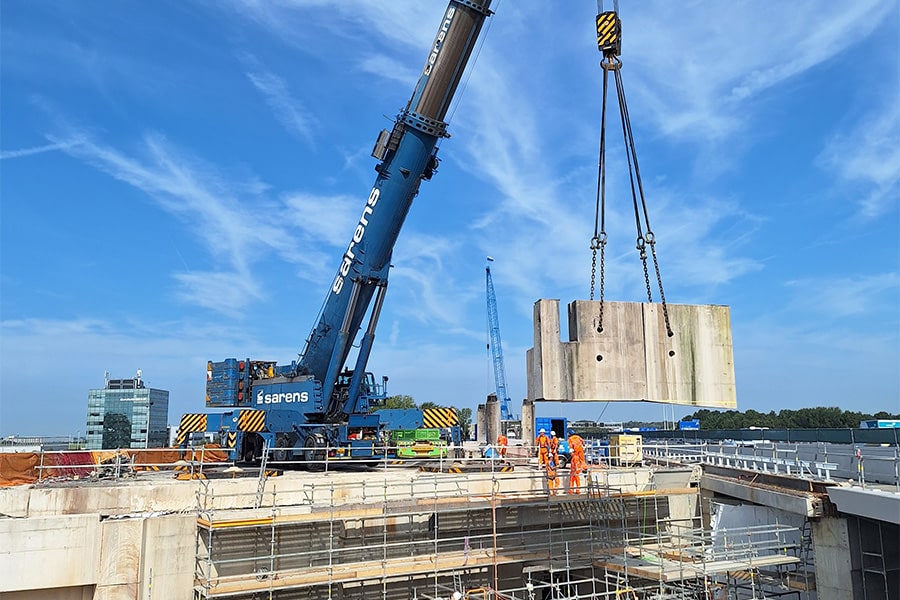
Challenges at the A9
On behalf of Hollandia, MNE handled the demolition and dismantling of the Schiphol Bridges on the A9 route. "Hollandia built the new steel bridges of the Schiphol Bridge. They are a good relation of ours. Part of their work was that they had to remove the old bridge, that's how we got involved in the A9 project." Two structures stood out in terms of complexity: the viaduct over Beneluxbaan and the Schiphol Bridge. In the case of the Schiphol Bridge, the work had to be carried out in phases because it was not allowed to interfere with traffic. "First we removed the bridge operator's house and the moving bridge section on the north side, while all traffic was directed over the south side," Hulshof explains. "Then the same thing happened on the south side."
Limited working space and the huge dimensions of the concrete sections - some weighed up to 70 tons - made it a challenge. Nevertheless, everything was completed within the tight time schedule. A total of 450 tons of steel and over 1,800 tons of concrete were involved, processed in just 2x four weeks.

Smart demolition
MNE began by dismantling the old steel north bridge. The first step of the demolition of the southern bridge was the hoisting, removal and scrapping of the steel halyard including the ballast box and movement gear as well as the temporary auxiliary bridge. For this, MNE cut the steel structure into parts. These parts were transported by water to an external demolition site. "That's typical MNE: everything under our own management." The steel bridge sections were followed by the concrete superstructure. The basement was cut into sections and lifted out by crane. "What made it extra complex was that the parts were not straight but had different shapes. That required precision in sawing and lifting. We suspended the platform from a steel beam structure to hoist it safely."
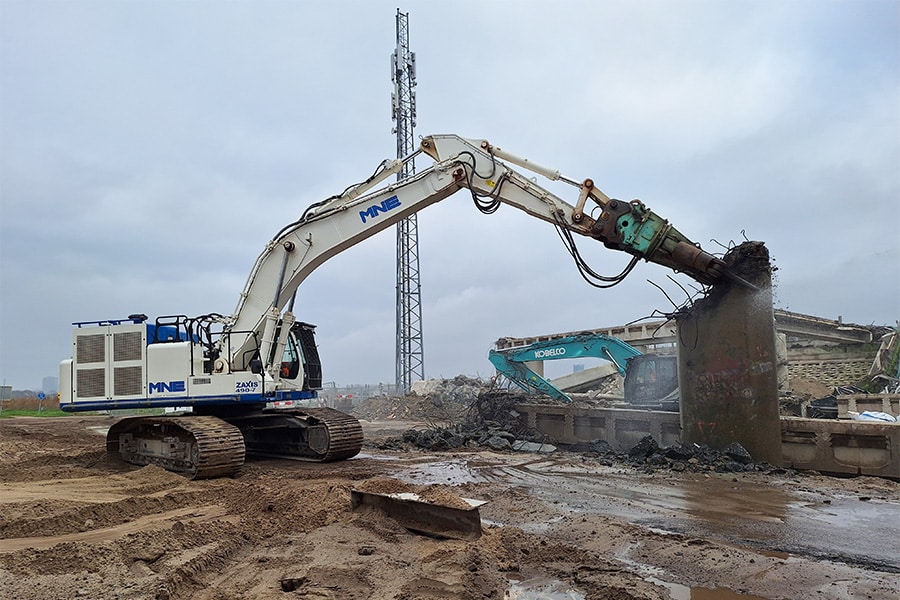
Disassembly in one weekend
One of the other structures MNE demolished was the viaduct in the A9 over the Beneluxbaan. After two weeks of rigorous preparation of building supports, drilling and sawing, MNE dismantled the entire viaduct in one weekend. "The big challenge here was that the VeenIX consortium and Rijkswaterstaat could not completely close off the A9 and the underlying road network. Moreover, we were dealing with a streetcar track. We designed a support structure so that the girders and the complete substructure could be sawn loose after which it could be dismantled in rapid succession. The great thing is that we reused material for that construction from another demolition project." In total, nearly 3,000 tons of concrete sections were dismantled, including 84 concrete beams, 6 pillar beams and 6 columns.
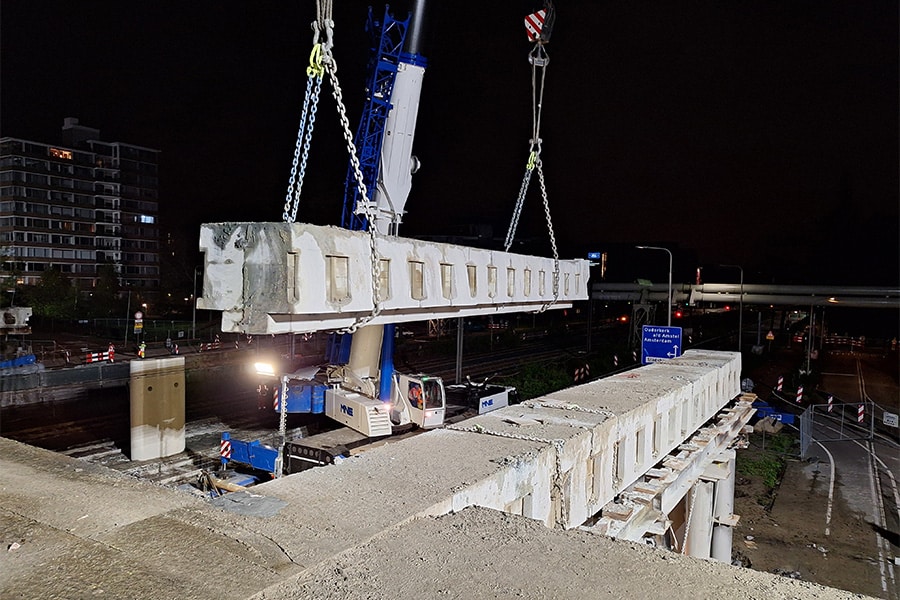
Circular
The common thread with all six artworks MNE has demolished so far on the A9 project is circularity. It started with the relatively smaller structure over the Holendrecht side road in Ouderkerk aan den Amstel. "Here we started harvesting the concrete beams. In consultation with specialized sawing and drilling companies, we developed a method to dismantle the concrete girders damage-free. In total, almost 300 beams have been successfully harvested by us on this job so far, which will be given a new use in another work of art in the future."
Collecting dust and water
An additional challenge in dismantling the overpasses was capturing the large amount of dust and water released during concrete cutting. "Here, too, we were inventive. We sealed the intermediate seams at the bottom with plastic strips. This allowed us to capture the sawing water and dust so that the underlying road network was not affected. A simple but very efficient solution."
Looking ahead: more opportunities for reuse
Hulshof looks back on the project with pride. "At the A9, we showed that demolition and reuse go together just fine. This is the future: fast, safe and sustainable dismantling. We see plenty of opportunities to reuse materials in future projects. Cooperation with the various parties involved is extremely good. Together we have arrived at beautiful, workable solutions."
Heeft u vragen over dit artikel, project of product?
Neem dan rechtstreeks contact op met MNE B.V..
 Contact opnemen
Contact opnemen
